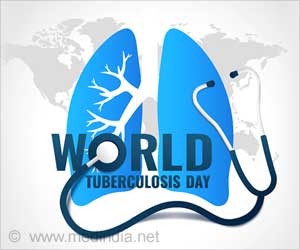Global efforts to combat TB have saved an estimated 63 million lives since the year 2000. Tuberculosis (TB), the second (after COVID- 19) deadliest infectious killer, is caused by bacteria (Mycobacterium tuberculosis) that most often affect the lungs.
It can spread when people who are sick with TB expel bacteria into the air – for example, by coughing. On the occasion of World Tuberculosis (TB) Day Zynova Shalby Hospital Ghatkopar has conducted a talk where Tuberculous and chest Diseases Specialist and Pulmonologist Dr. Tanvi Bhatt delivered a lecture on immune system & TB precaution.
“A comprehensive assessment is required for any fever lasting more than two weeks, or weight loss or poor appetite or prolonged cough or diarrhoea – any change in health status needs to be monitored by a qualified health professional because 27 % of the world’s TB cases have been found in India. The longer a person goes undiagnosed, and the later treatment begins, the more likely an infectious disease is to spread, sicken and kill. Many new cases of TB are attributable to five risk factors: undernutrition, HIV infection, alcohol use disorders, smoking and diabetes. TB is preventable and curable, about 85% of people who develop TB disease can be successfully treated with a 6-month drug regimen; treatment has the added benefit of curtailing onward transmission of infection. India has an TB incidence rate of 192 cases per 100,000 of population,” says Pulmonologist from Zynova Shalby Hospital Dr. Tanvi Bhatt.
“In many cases, people also confused the symptoms of TB with Covid-19. During the lockdown people could not access Hospitals, as most of the Hospital converted into Covid Hospitals, so most patients with other ailments were neither accepted nor treated. The reason for increased probability of tuberculosis in post-Covid patients are factors like altered immunity, lung inflammation and stress due to Covid, use of steroids for Covid treatment and worsening of blood sugar control. Poverty and a lack of financial resources are also associated with malnutrition, poor housing conditions, substance misuse, and HIV/AIDS incidence. These factors often contribute to a weakened immune system and are accordingly correlated with a higher susceptibility to TB in india,” says Covid-19 & Tuberculosis co relation Dr. Prasad Padwal, Pulmonologist from Apex Hospitals Mulund.
This year, the theme of World Tuberculosis Day is “invest to End TB. Save Lives.” The theme focuses on the need for investments and resources that are required to eradicate this disease.
It’s a way of conveying these needs to global leaders to reinforce their commitment to fighting this disease. Tuberculosis is one of India’s major public health problems.
According to World Health Organization (WHO) estimates, India has the world’s largest tuberculosis epidemic. In 2020, India accounted for 26% of the incident TB cases across the globe.
Source: Medindia



